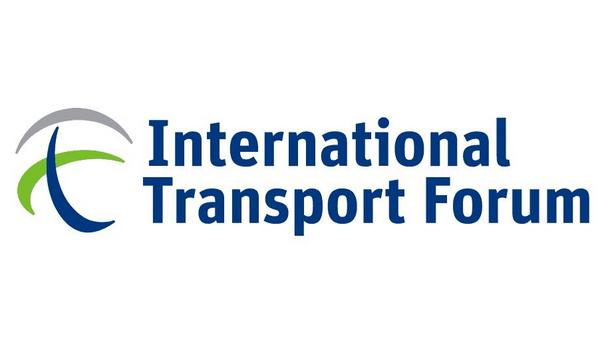International Transport Forum - Experts & Thought Leaders
Latest International Transport Forum news & announcements
The International Transport Forum (ITF) announces the winners of its inaugural Decarbonising Transport Award. The ITF Decarbonising Transport Award winner in the innovation category is Wanyama Autosafety Initiatives for its efforts at reducing air pollution from vehicle emissions. The Kampala-based start-up mobilises a network of over 400 local mechanics to improve the environmental performance of the Ugandan capital's most polluting vehicles. Born of an urgency to halt the detrimental effects of poor air quality in a city where pollution levels often reach six times the WHO's recommended safety limits, Wanyama Autosafety Initiatives spearheads research into solutions for transport-induced pollution. The initiative aims to increase public visibility and engagement and promotes a pragmatic, data-driven approach to tackling emissions. The Ugandan project hopes to use the EUR 10 000 prize on equipment, including field-based data collection equipment that will bolster the evidence base for tackling vehicle emissions. Wanyama Autosafety Initiatives also hopes to launch an electric vehicle conversion programme. Accepting the Award at the International Transport Forum's Summit on "Transport for Inclusive Societies" in Leipzig, Germany, on 20 May 2022, Michael R. Wanyama, Wanyama Autosafety Initiatives' Executive Director, said: "Our multi-faceted programme aims to address the devastating effects of air pollution in our largest city. Early results from this start-up venture clearly demonstrate that a community-based approach rooted in sound data analysis can result in better air quality and improved road safety. I hope the international recognition that comes with this prestigious Award will lead to a change in policies and a cleaner, sustainable mobility future in Uganda and beyond."
The International Transport Forum (ITF), NITI Aayog and the National Institute for Transforming India have jointly launched the ‘Decarbonising Transport in Emerging Economies’ (DTEE) project in India, on June 24, 2020. The launch, held via a webinar, was inaugurated by International Transport Forum – ITF Secretary - General Young Tae Kim and the Chief Executive Officer (CEO) of NITI Aayog - Amitabh Kant, in the presence of D.S. Mishra, Secretary in the Ministry of Housing and Urban Affairs, and Priyank Bharti, Joint Secretary in the Ministry of Road Transport and Highways. ‘Decarbonising Transport in Emerging Economies’ (DTEE) The ambitious five-year project will help India develop a pathway towards a low-carbon transport system The ambitious five-year project will help India develop a pathway towards a low-carbon transport system, through the development of modelling tools and policy scenarios. During his opening address, Young Tae Kim, the Secretary-General of the International Transport Forum, thanked NITI Aayog and their Chief Executive Officer (CEO), Amitabh Kant, for the support and collaboration on this project. Young Tae Kim said, “We are very pleased to launch this project with India, and excited that it is being so well received by our partner, NITI Aayog. This is a very important and promising undertaking that will provide practical support for the Indian government, for making the right choices on the way to a low-CO2 transport system.” ‘Decarbonising Transport in India’ project Young Tae Kim adds, “Our collaboration on the ‘Decarbonising Transport in India’ project is also an opportunity to further strengthen the relationship between India and the ITF.” In his keynote address, the Chief Executive Officer (CEO) of NITI Aayog, Amitabh Kant emphasized that the decarbonisation of the transport sector would create a cleaner, healthier and more affordable future for everyone. Modelling tool and assessment framework Amitabh Kant said, “The DTEE project would help India translate its climate ambitions into actions. The modelling tool and assessment framework would provide a targeted analytical assistance, to identify these climate actions and help us draw policies rooted in data analysis and advanced modelling.” He adds, “Given our diverse demographics across socio-economic factors, such as population, age, income, etc., it would be important to first estimate the demand for transportation in India and then do a detailed modelling to compute the CO2emissions.” Evidence-based assessment of mitigation impacts Amitabh Kant continues, “Building on this evidence-based assessment of mitigation impacts, bringing DTEE and NDC-TIA together under this collaboration would support our policymaking, by identifying various scenarios to achieve Nationally Determined Contributions (NDCs) targets, submitted by India under the Paris Agreement.” This project could very well define our future urban policies and could help us in designing policies" He further said, “This project could very well define our future urban policies and could help us in designing policies, which are firmly grounded in data and are likely to be highly efficient, and impactful across the entire transport ecosystem in India.” D.S. Mishra, Secretary in the Ministry of Housing and Urban Affairs, said “Our country is urbanising very fast, which will throw up huge challenges in terms of provision of various kinds of infrastructure, especially mobility.” International Transport Forum and NITI Aayog partnership D.S. Mishra adds, “Our strategies need to be in tune with our requirements, when our population doubles. I would like to congratulate NITI Aayog and ITF for coming up this project, which is one of the commitments of the Paris Agreement and the Government of India and we are working to achieve it.” The transport sector of India is the third most greenhouse gas (GHG) emitting sector, with the major contribution coming from road transport. Out of the total carbon dioxide emissions in India, 13% come from transport. These emissions have more than tripled since 1990. The increasing motorisation and demand for mobility in India have contributed to air pollution, congestion, as well as the increase of greenhouse gas emissions, in the urban area. Measures to tackle CO2 emissions In India, CO2 emitted per inhabitant was just about a twentieth of that of an average OECD country, yet, India’s transport CO2 emissions are likely to increase by almost 6% annually to 2030. India is actively taking a number of measures to tackle its emissions, including newer fuel emission norms as well as the promotion of electric vehicles in the country. NITI Aayog has been at the helm for the promotion of electric vehicles and sustainable mobility through its ‘National Mission on Transformative Mobility and Battery Storage’. Transport emissions assessment framework The ‘Decarbonising Transport in India’ project will design a tailor-made transport emissions assessment framework Given India’s vast size and its enormous and diverse transport sector, strategic policy decisions will have to be driven predominantly by data. The ‘Decarbonising Transport in India’ project will design a tailor-made transport emissions assessment framework for the country and provide the government with a detailed understanding of current and future transport activity and the related CO2 emissions as a basis for their decision-making. The ITF project team will work in close cooperation and coordination with India’s government agencies, local decision-makers, researchers, experts, and civil society organisations. Stakeholder workshops, training sessions, briefings for policymakers and mitigation action plans will support the development of policies, beyond the duration of the project. Decarbonising Transport global initiative The India project is carried out in the wider context of the International Transport Forum’s Decarbonising Transport initiative. It is part of the ‘Decarbonising Transport in Emerging Economies’ family of projects, which supports transport decarbonisation across different world regions. India, Argentina, Azerbaijan and Morocco are current participants. Decarbonising Transport in Emerging Economies (DTEE) is collaboration between the International Transport Forum (ITF) and the Wuppertal Institute, supported by the International Climate Initiative of the German Federal Ministry for the Environment, Nature Conservation and Nuclear Safety.
Consultations are underway to determine the impact of the pandemic. The International Transport Forum is closely monitoring the COVID-19 outbreak, including in consultation with OECD, and is currently considering implications for the ITF’s Annual Summit to be held in Leipzig, Germany, from 27-29 May 2020. Many countries have put in place restrictive measures to contain the COVID-19 pandemic. This includes the Summit host country, Germany, as well as other countries whose governments, enterprises, researchers and civil society organizations participate in the ITF Summit. Exchange of knowledge The ITF Secretariat is currently teleworking but fully operational and available to discuss any questions They are in close dialogue with the German government and the ITF Presidency of Ireland as well as their service providers in Leipzig regarding the situation and will be able to provide an update on Summit planning very shortly. Organizing global dialogue for better transport is a core mission of the ITF. They very much hope to be in a position to organize an exchange of knowledge also in the light of the unprecedented disruption of individual mobility and the movement of goods around the globe due to the COVID-19 crisis. The health and safety of all Summit participants and the staff who service the Summit remain their paramount concern, however, and cannot be compromised. They will continue to provide updates on Summit planning on the 2020 Summit website and via their ITF Summit Update newsletter. The ITF Secretariat is currently teleworking but fully operational and available to discuss any questions one might have.







